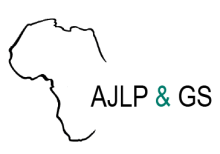Land Library
Welcome to the Land Portal Library. Explore our vast collection of open-access resources (over 74,000) including reports, journal articles, research papers, peer-reviewed publications, legal documents, videos and much more.
/ library resources
Showing items 1 through 9 of 80.The study examined the role of open data and digital technology in property management in urban and rural land in Rwanda in order to increase land tenure security and minimize land related problems.Methodology:Open and closed questions were developed and addressed to the community and local admin
Livelihood diversification has become an integral focus of policies and investments aiming to reduce poverty, vulnerability, and pressure on fishery resources in coastal communities around the globe.
Cattle play an important role in rural livelihoods and the economies of developing countries, especially regarding food and nutrition security and producer welfare.
The effect of an unproductive investment could be detrimental to the investor, especially when is a dairy farmer investor who depend on earnings and may distort the productivity effort if is not approached with caution.
Livelihood diversification is increasingly central to policy advice and investments in rural development and fisheries management.
Agricultural support policies cost more than US$800 billion per year in transfers to the farm sector worldwide. Support policies based on subsidies and trade barriers are highly distortive to markets and are also regressive as most support is provided to larger farmers.
As Rwanda is expected to return to its rapid growth trajectory following the COVID-19 pandemic, agriculture will continue to play a central role in the structural transformation of the entire economy.
Agri-environmental projects have been portrayed as tools for climate change adaptation and mitigation and to overcome processes of deforestation, soil erosion, issues of water availability, and biodiversity loss.
Children heading households (CHH) in urban informal settlements face specific vulnerabilities shaped by limitations on their opportunities and capabilities within the context of urban inequities, which affect their wellbeing.


